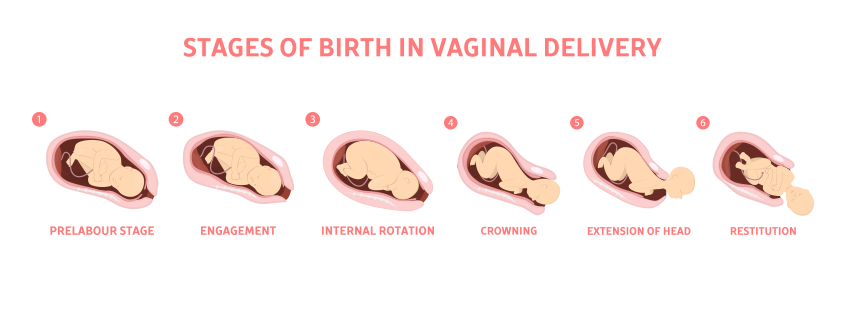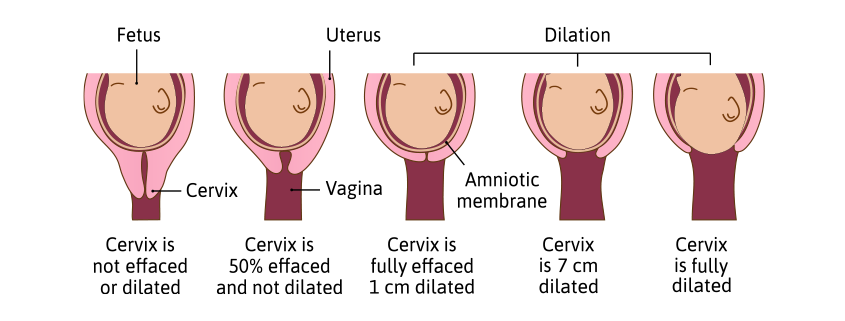What is Pregnancy Planning?
Like most important things in life, this phase of your life will also require you to plan a little ahead. Good news is always welcome, even when it is unexpected but when you decide to start a family or are actively trying, then it’s important to start right.
When you make a note of the essentials and take into consideration all factors of your life – that is when you’re planning a pregnancy effectively. Even the things that may seem not as important can play a part later. So it’s important to approach it from a holistic perspective.
From preconception health to finances and increasing chances of a healthy baby – pregnancy planning takes a lot into account. Different women have different experiences and it takes a different amount of time for them to get pregnant. Thus, planning ahead and using the time to ensure a healthy baby and a healthy pregnancy is what pregnancy planning is all about.
Steps in Pregnancy Planning
- Preconception Checkup: This involves a full body check-up of both partners to treat or eliminate any conditions – whether hereditary or not. This is important as it ensures a healthy pregnancy and a healthy baby.
- Lifestyle Management: If you’re wondering how to have healthy pregnancy, lifestyle management including healthy eating, discontinuing harmful habits and exercising can help you go a long way.
- Talking to your partner: The most basic but the most important part of pregnancy planning – this ensures that everybody stays on the same page and stress is effectively managed.
- Planning ahead: Last but not the least, having a concrete plan in place for the baby’s arrival is also important and helps set the path for years to come.
Why is Pregnancy Planning Important?
Pregnancy planning helps in more ways than one. It is a holistic approach to a new start and ensures the overall well-being of both parents and the baby for a happy and healthy tomorrow. In the initial stages, pregnancy planning can help ensure the overall health of the mother and father for a healthier pregnancy. It also takes into account entire medical history and helps you tackle the same for a healthy offspring.
Moreover, a holistic pregnancy planning is also good for the overall mental and physical health of parents and ensures their happiness, thus creating a positive environment for the baby. Broadly speaking, pregnancy planning is beneficial for both parents and baby even before conception and is thus extremely important for every couple planning a family.
Tips on Pregnancy Planning
Preconception Checkup
If you’re planning to get pregnant, you should get an appointment with your doctor for a preconception checkup. This will help you towards a healthier pregnancy and easier conception. It is also the time to detect any problems or get medication for existing conditions.
This checkup can include a lot of things like below:
- Medical history of both partners: thyroid problems, haemophilia, diabetes, hypertension etc. are just some of the many screening tests one can get done prior to getting pregnant to ensure a healthier offspring.
- Genetic history of both partners: genetic diseases or conditions should be identified in the preconception stage so it can be treated or medicines can be administered so it doesn’t affect the offspring.
- Fertility tests if needed: if you have been trying for a while or there have been not so successful results before, you can consult a specialist for fertility issues. This could also include ovulation cycles’ awareness etc. to help increase the chances of conception.
- Multivitamins and folic acid: depending on your health, the doctor may advise a few vitamins and folic acid to prepare your body better for the pregnancy.
- Inclusion of iron: depending on your health conditions, the doctor may advise additional iron intake in the form of capsules or tablets.
- Mental health assessment: if you’re undergoing treatment for mental health or have been diagnosed with depression, anxiety etc. the doctor can guide you towards a healthier pregnancy by helping you cope with your triggers. After all, a happy mother is a healthy mother.
Lifestyle Management
Maintaining a healthy lifestyle is of utmost importance when you’re planning a family. These include many factors like diet, routines etc.
Some ways to make your lifestyle healthier are listed below:
- Stopping alcohol, smoking, other drugs and limiting the amount of caffeine can greatly contribute towards a healthier pregnancy.
- Stress management is equally important when it comes to family planning – heightened stress can not only reduce chances of conception but also affect the foetus. Thus it is important to identify and tackle stress.
- Maintaining the ideal weight is essential for the foetus’ healthy growth. Find out the ideal weight for your body and work towards achieving the same.
- Exercising every day can help you stay fit and healthy and also refresh your mind. Unless your doctor asks you not to, you can opt for a walk or jog every day to stay fit.
- If your work involves exposure to dangerous toxins, this would be a good time to take appropriate precautions or even stay away for a while.
- Eating healthy is also another important part of pregnancy planning. While you can consult a specialist for dietary requirements, generally limiting sugars, eating at the right time, staying hydrated and avoiding junk food can go a long way in ensuring a healthy pregnancy.
Talking to Your Partner
While it may be the most obvious thing, sometimes we miss the important bits. From feelings to planning – one should take into account all that both partners are feeling, so everybody is on the same page.
Here are some things you can consider talking about while planning a family:
- Talk feelings: talking about what both of you’re feeling about the upcoming changes or if the doctor visits etc. have taken a toll on anything: just having open communication can ensure that a lot of things go smoothly.
- Talk finance: you don’t want to be caught off-guard when the baby arrives. So it’s better to plan and be open about finances and plan the journey ahead.
- Help each other manage stress: while focussing on the baby and pregnancy, it’s important not to lose the partner – talk about things that are happening and take a walk together or just spend some time together to ensure stress levels stay low.
- Enjoy your time: once the baby arrives, everything will revolve around the little one, so take this time to bond with your partner and make memories.
Planning Ahead
Once you have everything in place for the pregnancy and planning, it’s time to think ahead and ensure a smooth transition from pregnancy to parenthood.
Here are some things you can consider while planning ahead:
- Deciding on the hospital for birth and having a birth plan
- Ensuring insurance etc. are valid and in place for the big day
- Preparing a hospital bag for the birth of your baby
- Setting up baby’s room with all the essentials Planning finances for the baby’s first few years and putting away money for the same
- Planning for any medical contingencies
- Making plans about baby care if both of you resume work after a while

FAQ
- When should you start preparing for pregnancy?
You can start planning or preparing for pregnancy, months or even years in advance. From being physically and mentally healthy to financial stability – a holistic approach can take a varying amount of time for various women. - What should I eat while planning to get pregnant?
Every doctor would recommend a healthy diet when you’re planning to get pregnant. Including vitamins, proteins and minerals etc. while cutting down on fats and junk food is the general rule of thumb. - What things to avoid when trying to get pregnant?
Among habits, doctors advise avoiding smoking, drinking and other drugs when trying to get pregnant. Stress and unhealthy food are also among the things to be avoided. - How do I prepare my body to get pregnant?
Before getting pregnant, one must ensure overall well-being of one’s own body. This includes a healthy diet, check-ups with doctors and also light exercises to stay fit.
Disclaimer:This blog solely intended for the educational/informational/awareness purposes and is not a substitute for any professional medical advice, diagnosis or treatment. Please consult your doctor/healthcare professional before acting on the information provided on the blog. Reliance on any or all information provided in the blog, is solely at your own risk and responsibility. Mankind Pharma Limited shall not be held liable, in any circumstance whatsoever.



































